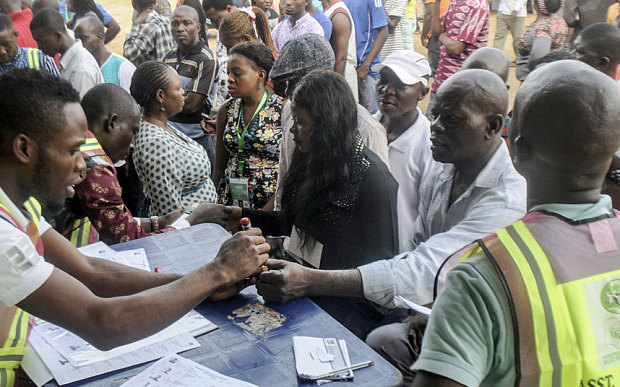by Atiku Nafisa
I had gone to support my friend Inioluwa Ajayi now Abiodun at her TED Talk at the University Ibadan. She spoke about ‘Building Bridges’, building a line of mentorship between the older generation and the younger generation. she introduced me to her mentor, Mr. Emeka Ossai, a Mandela Washington Fellow and we embarked on a very interesting conversation. I was involved in activities on civic education and governance at that period with some young people in Ibadan and it provided a fertile ground for the both of us to have a fruitful discussion. In the middle he asked me, ‘Can democracy truly thrive without economic empowerment?’
The answer to that question is a big and resounding ‘NO’. Perhaps that’s why it seems a bit difficult for a country like ours to achieve a sustainable and flourishing system of democracy where the will of the people prevails.
Democracy thrives in a system where the electorate is free to make their voting decisions without intimidation, coercion or inducement of any kind, this is hard for most Nigerians especially given the fact that the country currently has the highest number of extreme poor in the world. Hungry people are not interested in long term promises no matter how credible they might seem; they want immediate satisfaction of their needs and that sometimes comes through the act of vote buying.
Vote Buying was brought to national lime light thanks to the Ekiti State elections. The targets are usually low income earners and the ambivalent voter. The latter is undecided, not necessarily interested and is not loyal to an ideology, party or candidate and so they are easily swayed by persuasion and any sort of enticement.
No amount of effective sensitization and civic education can address this problem, we are not going to stop people from selling their votes if poverty persist. When it comes to the low income earners or those that leave below within the poverty line; we face a monumental challenge, how do we lift 87 million people out of poverty to improve their voting decisions?
However to achieve this, we must indeed have an administration that is solely committed by all means to achieve sustainable prosperity for it’s people. Kenya, Argentina, Mexico and other countries have suffered from this threat to their democracy.
Some people cite China as a country which neither practices democracy but is able to achieve monumental prosperity for its people. Every country has a system of government that works for them, and until substantial evidence can be adduced to show that democracy doesn’t work for us, it is the ideal system of government that best suit Nigeria.
Economic empowerment has a lot to do with voter integrity in a system like ours. It is left for us to vote in a government that places the prosperity of it’s people at the forefront of their agenda for the country.
